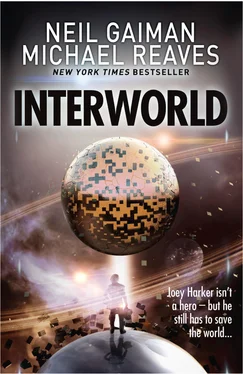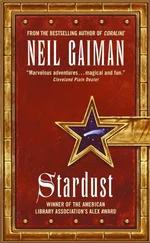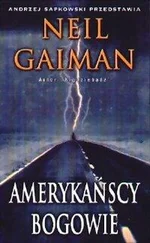She was looking at me like I had just climbed out of the sewer wearing a hockey mask and carrying a chain saw. She didn’t say anything.
“Look, I’m really sorry,” I told her. “My bad. Okay?”
She nodded without saying anything, and she walked away down the sidewalk until she reached the cross street, glancing behind her every few moments. Then she ran as if all the hounds of hell were after her.
I wanted to apologize for spooking her, but I had my own problems.
I was lost in downtown Greenville. I had gotten separated from the other two members of my unit. I had surrendered all my change. I’d failed Social Studies.
There was only one thing to do, so I did it.
I took off my shoe.
Under the inner sole was a folded five dollar bill. My mom makes me keep it there for emergencies. I took out the five bucks, put my shoe back on, got some change and got on a bus for home, rehearsing all the things I could say to Mr. Dimas, to Rowena, even to Ted, and wondering whether I’d get lucky in the next twelve hours and somehow manage to contract a disease so contagious that they’d have to keep me out of school until the end of the semester. . . .
I knew that my troubles wouldn’t be over once I got home. But at least I wouldn’t be lost anymore.
As it turned out, I didn’t even know the meaning of the word.
I RODE THE BUS home in a daze. A few blocks after getting on, I stopped looking out the window and started looking at the back of the seat in front of me. Because the streets didn’t look right. At first there was nothing specific I could point out that bothered me; everything just seemed a little bit . . . off. Like the green tartan McDonald’s arches. I wished I’d heard about whatever they were promoting.
And the cars. Dad says that when he was a kid, he and his friends could easily tell a Ford from a Chevy from a Buick. These days they all look the same no matter who makes them, but it was as if someone had decided that all cars needed to be painted in bright colors—all oranges and leaf greens and cheerful yellows. I didn’t see a black car or a silver one all the way.
A cop car went past us, siren on, lights flashing: green and yellow, not red and blue.
After that, I kept my eyes on the gray cracked leather in front of me. About halfway to my street I became obsessed with the idea that my house wouldn’t be there, that there would be just an empty lot or—and this was even more disturbing—a different house. Or that if there were people there, they wouldn’t be my parents and my sister and baby brother. They’d be strangers. I wouldn’t belong there anymore.
I got off the bus and ran the three blocks to my house. It looked the same from the outside—same color, same flower beds and window boxes, same wind chimes hanging from the front porch roof. I nearly cried with relief. All of reality might be falling apart around me, but home was still a haven.
I pushed the front door open and went in.
It smelled like my house, not someone else’s. Finally I was able to relax.
It looked the same inside as well—but then, as I stood in the hallway, I started to notice things. Little things, subtle things. The kind of things you think that you could be imagining. I thought maybe the hall carpet was a slightly different pattern, but who the heck remembers a carpet pattern? On the living room wall, where there had once been a photo of me in kindergarten, was now a picture of a girl around my age. She looked a little like me—but then, my parents had been talking about getting a photograph of Jenny. . . .
And then it hit me. It was like the time I went over the falls last year, when the barrel hit the rocks and smashed, and suddenly the world was all bright and upside down, and I hurt. . . .
There was a difference. One you couldn’t see from the front. The annex we’d had built this spring—the new bedroom for Kevin, my baby brother—wasn’t there.
I looked up the stairs—if I stood on tiptoe and twisted my neck to just short of painful, I could see where the new hallway started. I tried doing that. I even took a couple of steps up the stairs to see better.
It was no use. The new addition still wasn’t there.
If this is a joke, I thought, it’s being pulled by a multimillionaire with a really sick sense of humor.
I heard a noise behind me. I turned around, and there was Mom.
Only she wasn’t.
Like Rowena, she looked different. She was wearing jeans and a T-shirt I’d never seen before. Her hair was cut the same as always, but her glasses were different. Like I said, little things.
Except the artificial arm. That wasn’t a little thing.
It was made of plastic and metal, and it started just below the sleeve of her T-shirt. She noticed me staring at it, and her look of surprise—she didn’t recognize me any more than Rowena had—turned suspicious.
“Who are you? What are you doing in this house?”
By this time I didn’t know whether to laugh, cry or start screaming. “Mom,” I said desperately, “don’t you know me? I’m Joey!”
“Joey?” she said. “I’m not your mom, kid. I don’t know anyone named Joey.”
I couldn’t say anything to that. I just stared at her. Before I could think of what to say or do, I heard another voice behind me. A girl’s voice.
“Mom? Is anything wrong?”
I turned around. I think I was already sort of subconsciously expecting what I would see. Something in the voice told me who would be standing there at the top of the stairs.
It was the girl in the picture.
It wasn’t Jenny. This girl had red-brown hair, freckles, kind of a goofy expression, like she spent too much time inside her own head. She was as old as me, so she couldn’t be my sister. She looked like—and then I admitted to myself what I already knew—she looked like what I would look like if I were a girl.
We both stared at each other in shock. Faintly, as if from far away, I heard her mother say, “Go back upstairs, Josephine. Hurry.”
Josephine.
It was then that I understood, somehow. I don’t know how, but it hit me and I knew it was the truth.
I didn’t exist anymore. Somehow I’d been edited out of my own life. It hadn’t worked, obviously, since I was still here. But apparently I was the only one who felt I had any right to be here. Somehow reality had changed so that now Mr. and Mrs. Harker’s oldest child was a girl, not a boy. Josephine, not Joseph.
Mrs. Harker—strange to think of her that way—Mrs. Harker was scrutinizing me. She was wary, but she also seemed curious. Well, sure—she was seeing the family resemblance in my face.
“Do I—know you?” She frowned, trying to place me. In another minute she’d figure out why I looked so familiar— she’d remember that I’d called her “Mom”—and, like me, her world would fall apart.
She wasn’t my mother. No matter how much I wanted her to be, no matter how much I needed her to be, this woman wasn’t Mom any more than the woman in the blue coat that day at Macy’s.
I ran.
To this day I don’t know if I ran away because it was all too much to handle or because I wanted to spare her what I knew: that reality can splinter like a hammered mirror. That it can happen to anybody, because it had just happened to her—and to me.
I ran past her, out of the house, down the street, and I kept running. Maybe I was hoping that if I ran fast enough, far enough, I could somehow go back in time, back to before all this insanity happened. I don’t know if it might’ve worked. I never got a chance to find out.
Suddenly the air in front of me rippled. It shimmered, like heat waves gone all silvery, and then it tore open. It was like reality itself had split apart. I caught a glimpse of a weird psychedelic background inside, all floating geometric shapes and pulsing colors.
Читать дальше








